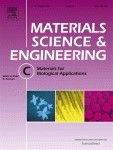There has recently been great interest in developing bioabsorbable materials for small diameter arterial stents as a number of fully bioabsorbable polymeric stents have shown success in clinical trials. SURFI Team has been developing bioabsorbable stents based on zinc and demonstrated zinc’s ideal corrosion rate and behavior in the rat artery. The promise of a zinc-based stent is that it would retain the excellent mechanical properties that clinicians have come to expect from traditional stents (in contrast to the poor mechanical properties of polymeric stents), but would avoid the harmful chronic effects of the permanent implants (similar to degradable polymeric stents).
In the new paper entitled “Zn-Li Alloy after Extrusion and Drawing: Structural, Mechanical Characterization, and Biodegradation in Abdominal Aorta of Rat,” we describe the novel Zn-Li alloy formulated in our research project that was processed via extrusion and drawing in Germany, and then characterized, mechanically tested, and used in arterial implantation in rats from which biocompatibility and corrosion rate data were collected. Our new Zn-Li alloy generally came close to meeting material strength and elongation benchmarks, and their elastic ranges are comparable to Co-Cr-based alloys, making them very favorable for endovascular stent application. The Zn-Li material also exhibited acceptable compatibility with surrounding arterial tissue and our histopathological analysis failed to identify necrotic tissue in the samples examined.
Paper on Zn-Li
This entry was posted in Publications. Bookmark the permalink.

